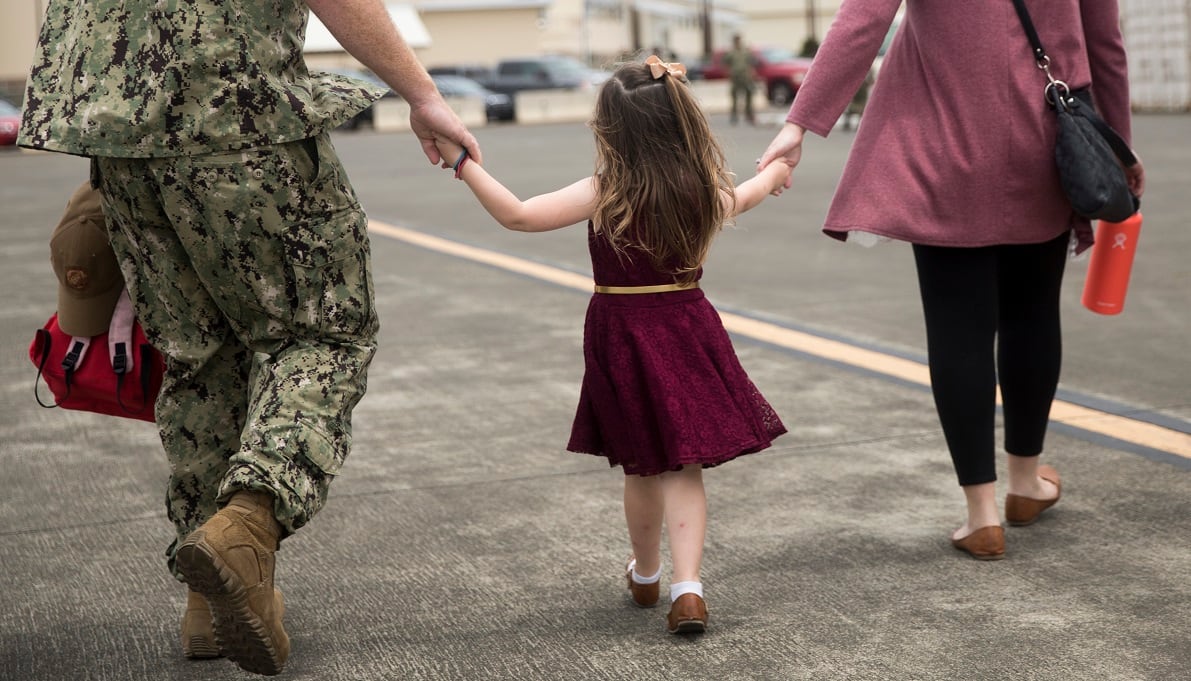The Defense Department’s stop-movement order has been extended through June, per a defense secretary memo that went out to the force Monday.
Most permanent change-of-station moves, training and temporary duty ― as well as some deployments and re-deployments ― have been on hold since March 12, as DoD encouraged troops, civilians and families to stay put amid the the coronavirus pandemic.
“While I understand the impact this has on our troops and their families, this is a necessary measure to keep out people safe and our military ready to act,” Defense Secretary Mark Esper told reporters Tuesday, after announcing that he had decided to extend the travel ban.
When asked Saturday whether another ban could come down extending that June 30 end date, Defense Under Secretary for Personnel and Readiness Matthew Donovan told reporters, “Never say never.”
The original policy threw hundreds of service members into turmoil. Some had handed over the keys to their apartments and sent their families and household goods ahead of them to the next duty station, only to be told their temporary arrangements ― hotels, friends’ couches ― would be extended by two months at least.
Others have not been able to take leave for the birth of a child, as is the case with troops stationed at the U.S.-Mexico border.
Much of the general guidance remains as before: no domestic or international travel unless it’s deemed mission essential.
RELATED

The previous memo gave local commanders the ability to grant exemptions based on hardships and other extenuating circumstances, but the latest version offers more details on the kinds of situations that could constitute an exception.
• Traveling for recruiting, including recruiters and recruits. The exception also applies to shipping to basic training and then traveling to a first duty assignment.
• Patients, including escorts, requiring travel for medical treatment.
• Deployments and re-deployments, coordinated by combatant combats. This includes all Navy ships, provided the crews have been in a 14-day quarantine before getting underway.
• Service members who are mid-PCS move, having already left their previous duty stations and are en route to the next one.
• Anyone who is on temporary duty during the travel ban, preparing to return to their permanent duty stations.
• Logistical travel, including re-supply and other sustainment missions.
• Troops preparing to retire or end their terms of service.
• Other travel authorized by the head of a diplomatic mission.
Any other extenuating circumstances will require a waiver, which can be approved by a combatant commander, the Joint Chiefs chairman, a service secretary, the National Guard Bureau chief or a chief management officer for personnel at the Pentagon.
For those who are able to travel during the ban, there will be screening procedures for before and after trips, and wherever possible, military aircraft or other military transportation will be provided.
The policy will continue to be reviewed every 15 days, Esper wrote.
Meghann Myers is the Pentagon bureau chief at Military Times. She covers operations, policy, personnel, leadership and other issues affecting service members.





